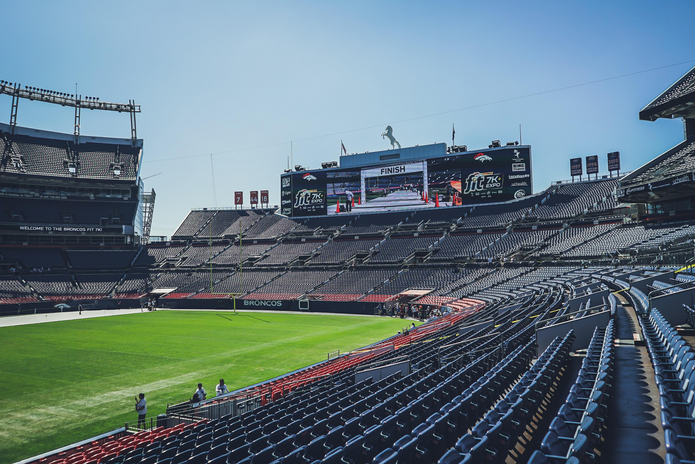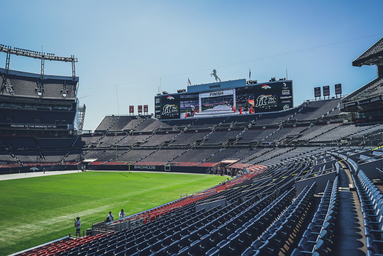Friday afternoon, the National Football League made some changes in their Week 15 schedule after three teams suffered from a COVID-19 outbreak.
These teams are the Cleveland Browns, Los Angeles Rams, and Washington Football Team. Each team has at least 15+ players and coaches on the COVID/Reserve List.
This change came after supposedly being pressured by teams to accommodate for this situation. The NFL and National Football League Player Association (NFLPA) discussed in a meeting about the best course of action would be for the players’ and coaches’ safety.
However, this decision came a little too late, and was quite shocking following the NFL’s statement on their COVID protocols in July.
The fact that the NFL made this decision this late, and bended their rules, feels a lot like their players’ safety is not at the forefront of their priorities.
If anything, it feels like the last thing they would think of.
The idea that the NFL would simply just “not care” is not as far-fetched as one might think. In 2013, the NFL faced a concussion controversy (one that seems to linger this season as some of the officiating rules and calls have not always been in the best interest of the player.)
Concussions are a serious matter, but they’re particularly important in the NFL. Concussions cause CTE, brain degeneration caused by severe head trauma. The NFL did not try to fix the problem until the NFL became the problem. Until they were pressured to do something.
Granted, 50 years ago, we didn’t have the same technology, rules, etc. and the NFL was obviously a lot more of a violent game. However, we progressed from that and have advanced technology, so that should mean that player safety becomes more of a priority. The NFL and NFLPA’s handling of the concussion controversy tells you everything you need to know about how they prioritize player safety.
This season, we’ve seen a lot of referee penalties that were missed that were a direct result of another player getting hurt without the other team suffering the consequences. Oftentimes, a lot of “personal foul” calls are missed because the refs are inconsistent in judging what qualifies as “unnecessary roughness” or “face mask.”
But should one player taunt another, all hell breaks loose.
Because a personal foul is the most violent type of act a player can commit, they typically need the strictest consequence (15 yard penalty for the team at minimum.) But when a foul goes unnoticed? What happens then?
As much as I love to blame the refs for their atrocious judgement, we need to look at the bigger picture. The NFL needs to create a standard for player safety, and focus less on the revenue they get from showing games.
Now, we have a COVID-19 pandemic, and the NFL had to figure out last season how to maneuver being as safe as possible. Personally, I did not want NFL football to go away for a whole season. It was the first kind of “normalcy” I saw since the start of the pandemic. Football is a special thing for me, and I know the NFL did not want to cancel a season either. I thought, all things considered, that the NFL handled last season as best as they could. I can’t hold a grudge over what they did or didn’t do well as this was the first time a situation like this happened. Last season, players could opt out of the season if they felt unsafe playing. Some stadiums had no fans in attendance. All of the protocols were up to each stadium and under each respective city’s guidelines.
But now we have this season, where things are a little more advanced and vaccines are available. In July, the NFL announced that teams that could not get their COVID outbreak under control, that started from an unvaccinated player, would have to forfeit their next game and be credited a loss.
That, however, is not the case for when it came down to making those decisions.
In Week 15, three games were moved to one game on Monday night and two games on Tuesday night. These games were the Las Vegas Raiders versus the Cleveland Browns*, the Seattle Seahawks versus the Los Angeles Rams*, and the Washington Football Team* versus the Philadelphia Eagles. Though I cannot specifically talk about the Browns and Rams, the WFT outbreak stemmed from an unvaccinated player.
In the offseason, WFT head coach and cancer survivor, Ron Rivera, expressed frustration with his team’s low vaccine record. Being a cancer survivor, Rivera is immunocompromised, and cannot risk getting the COVID-19 virus.
The Friday before the matchups, the NFL and NFLPA sat down to discuss options for the three football games. Instead of following their guidelines set in place in the offseason, the organizations decided to postpone the games. Though more than half of Washington’s team contracted the virus, including a number of the coaching staff, the NFL made the executive decision to push back the game two days. Players who test positive can test negative twice before their game day, so that did give the team a little more breathing room.
If this feels like the wrong course of action, you’re probably right.
Because the organization scrambled to save its revenue over making better decisions in accordance with player safety, players on those respective teams did not respond well.
Why would the NFL put not only the players of the teams going through an outbreak through a short week, but also the players who do not have the virus? In the case with the Tuesday night teams, they have a shorter time span to rest and recover. Not only that, but there’s a chance that more players can test positive for the virus. Eagles head coach, Nick Sirianni, tested positive for the virus on Wednesday. This makes his Tuesday night “tough love” towards Jalen Hurts a lot scarier for the Philadelphia team as they head into their Sunday matchup against the Giants.
The NFL’s reaction to the three teams having a COVID outbreak is quite performative activism and was not truly in the best interest of the players. Moving forward, the lives of the players and their families are at risk when the NFL needs to consider what the best course of action is as the season progresses.

